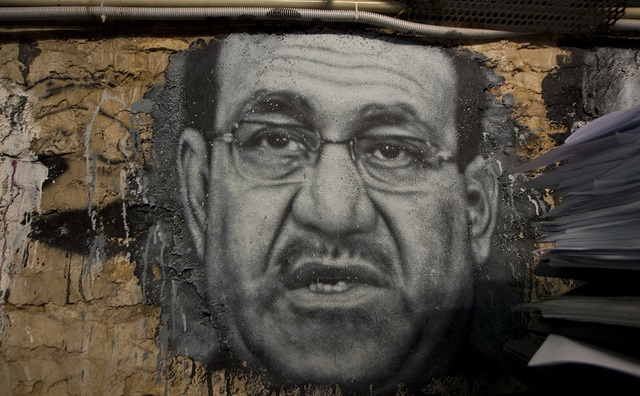 Iraq’s struggle for power ended on August 14 when Nouri al-Maliki conceded the office of the prime minister to his rival Haidar al-Abadi, a member of the same Shiite Islamist Da’awa party, who was designated by Iraq’s president earlier this week to form a government. The potential for a peaceful transfer of power marks an important milestone in Iraq’s history and brings newfound hope to putting the country back on the right track. But while Maliki’s departure is now certain, many other factors remain that still threaten the unity and stability of Iraq.
Iraq’s struggle for power ended on August 14 when Nouri al-Maliki conceded the office of the prime minister to his rival Haidar al-Abadi, a member of the same Shiite Islamist Da’awa party, who was designated by Iraq’s president earlier this week to form a government. The potential for a peaceful transfer of power marks an important milestone in Iraq’s history and brings newfound hope to putting the country back on the right track. But while Maliki’s departure is now certain, many other factors remain that still threaten the unity and stability of Iraq.
The most important factor includes the shape of the next government. According to Iraq’s constitution, Abadi has thirty days to form a government from the start of his appointment, on August 11. He will likely meet his deadline, given the wide support for his candidacy as a replacement for Maliki, but questions surrounding the division of power in the next government remain unanswered. More importantly, can Shiite, Sunni, and Kurdish parties strike the type of deals that will make a national unity government sustainable over time and trial? It is one thing to form a government that includes all sects; it is another to create a system that is both viable and functional.
The United States will most likely focus on helping the Iraqis cobble up a government within the constitutional timeframe, then directly assist it in its fight against militants of the Islamic State in Iraq and al-Sham (ISIS, also known as ISIL or the Islamic States). But this overlooks the importance of settling major disputes for a government to last. Indeed, the challenges that Iraq faces today are the same that have plagued Iraq since the 2003 fall of Saddam. The prospect that major disputes that go unresolved could lead to the collapse of the government makes matters worse. Viability is a most important factor in forming the new government, not ethnic makeup.
Abadi’s his style of governance, in both the near and long term, will no doubt affect the course of Iraq’s resistance to ISIS and state integrity. Thus far, he is known to be a mainstream politician from the Shiite Islamist fold, while lacking a history in advocating for reform. Given the deep political divisions that still exist between and within Iraq’s parties, Abadi will likely focus his agenda on uniting against the Islamic State. While the common and rising threat of ISIS will give Abadi some breathing room in navigating Iraq’s divisive politics, at some point, he will have to make difficult political decisions. In this context, a dilemma will present itself to the new leader: make painful concessions that risk threatening his political survival or consolidate power.
Whatever plans Abadi has in mind, he will quickly realize he does not have as much independence and control as he would like. The security and political environment will shape the options available and greatly influence how decisions are ultimately made. With far too much emphasis placed on the power of individuals in determining Iraq’s direction, decision-makers must reconsider how the broader dynamics and structures in which those individuals are situated will influence that future. While Abadi may be more open to compromise with the Sunnis and Kurds than Maliki, the political and sectarian structures that confine the extent of those compromises will limit his choices. Abadi enters office amid a sectarian civil war—a position carrying considerable risk in how far he can reach out to other parties. It remains uncertain whether or not Abadi has the force of will to push through the kind of painful reforms needed to secure Iraq’s stability and unity.
Thus far, the narrative within the Sunni Arab community is one of cautious optimism. Sunnis recognitize the need to give Abadi a chance to prove himself as something more than a cosmetic switch at the top of Iraq’s power pyramid. A high degree of doubt remains about whether or not Baghdad will deliver on the compromises and concessions for which they are looking. For Iraq’s Sunnis, Maliki’s departure was not their ultimate goal, but rather a means to many ends.
Ramzy Mardini is a nonresident fellow at the Atlantic Council’s Rafik Hariri Center for the Middle East.
Image: Nouri al-Maliki, painted portrait. (Photo: Flickr/thierry ehrmann)
